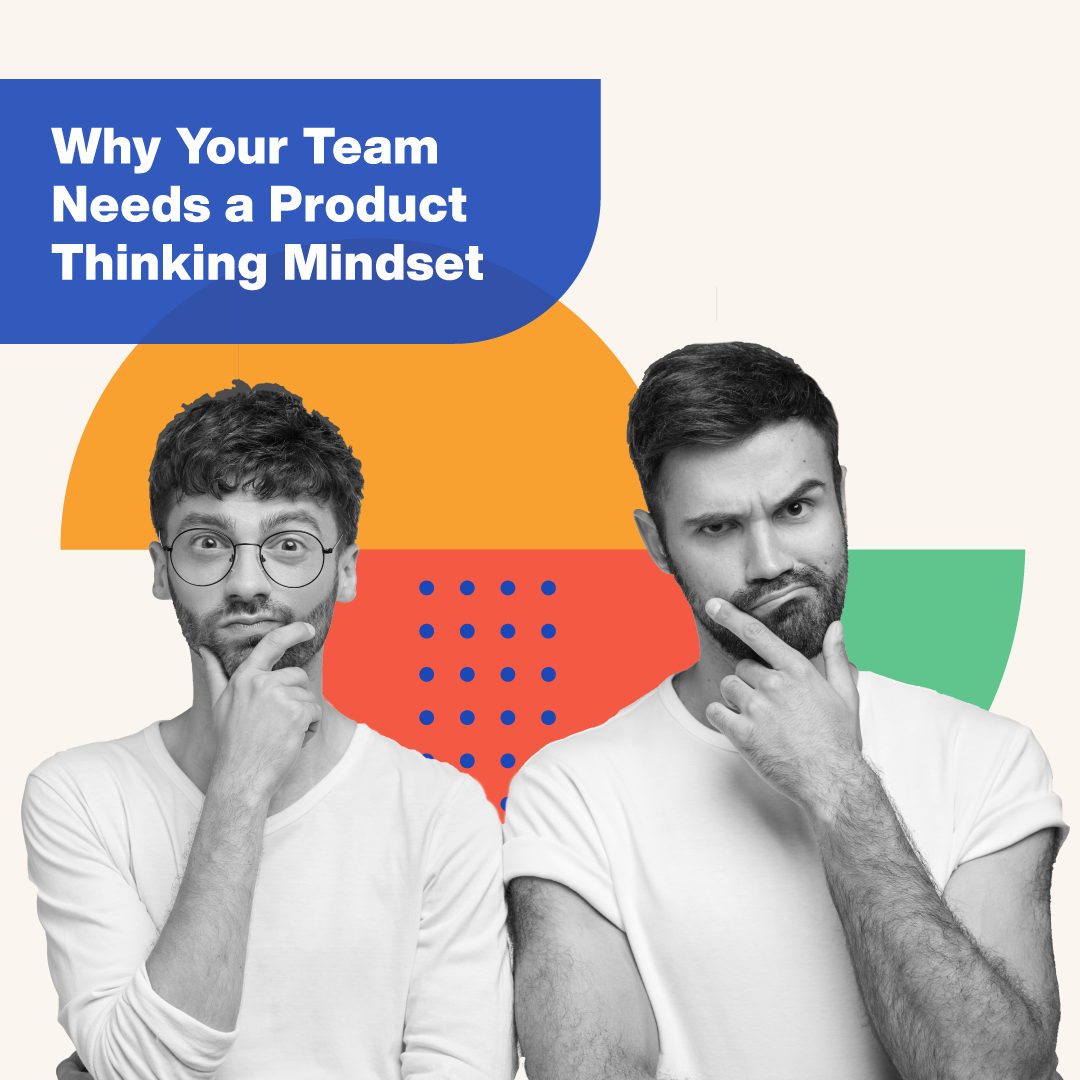Colin Mansell is the CEO and co-founder of Skills Union, headquartered in Singapore. He has been involved in tech and education for the last 20 years – Skills Union is his third venture in digital education. Colin originally completed a BSc in music technology and holds a Masters’s degree in marketing. On the side, he’s a pianist, drummer, avid sailor, and scuba diver!
We sat down this month with Colin Mansell, CEO, and co-founder of Skills Union, to catch up about the future of education, the power of cohort learning, and why he feels Skills Union is in a “magical phase”.
Colin, congratulations on the investment Skills Union has just raised! Please tell us a bit more about it.
Thank you! We feel very fortunate to be joined by such a phenomenal group of investors who have come on board. The recent round was led by Online Education Services (OES), who are part of the Seek group, as well as a dozen super experienced investors and entrepreneurs. They include some very well-known names from the Asia start-up ecosystem.
It is such a talented group that really understands our goals and ambitions and shares our values and global perspective. Their support has been incredibly valuable as we start to scale and think about the role and impact that this kind of education can have in creating a better future for both our students and the organisations they work with.
Can you tell us a bit more about Skills Union?
Skills Union is a learning company that designs and delivers university-accredited training programs, workshops, courses, and degree pathways. Our mission is to empower graduates and organisations to truly succeed in the fast-evolving global tech industry. Our cohort-based, human-centred learning approach is what differentiates us.
We focus on providing students with highly relevant knowledge and skills that result in outstanding career outcomes – both for them and the organisations they work for. Students build their skills through designing projects and applying their knowledge in a live, interactive learning environment. They receive direct input, feedback, and personalized support from our talented community of instructors, mentors, and coaches – all while growing lifelong connections and friendships across our community.
We know people ultimately learn from people, and in the case of learning digital skills, there is no better way to learn than by doing.
What kind of courses do you offer?
We focus on the most in-demand areas in tech, such as software engineering, UX design, digital marketing, entrepreneurship, and data and analytics. Our longer programs are delivered over six months, and we also have a range of shorter courses and live online workshops that focus on specific areas within tech.
In today’s world, it’s rare for people to be able to take a significant amount of time off for a full-time program. Similarly, companies want their employees to be able to learn on the job. Because of this, most of our programs are delivered part-time and are designed to fit with the schedules of working professionals.
The programs are pretty intensive, but we’ve paced them to give students more time to absorb what they’re doing. We don’t believe you can cram learning into a short space of time and expect students to walk away job-ready!
How does Skills Union teach students?
Our pedagogy is grounded in learning science. We’ve developed a delivery model that takes all the best elements of the flipped classroom. This is combined with a hands-on, experiential learning approach.
We’re all about cohort-based delivery, project-based learning, and expert feedback and coaching. When these things come together, they create a challenging and highly effective learning context with exceptional completion rate results.
We’ve seen amazing student outcomes from our programs, including graduates going on to work with companies like Netflix, BCG, E&Y, KPMG, Publicis, MediaCorp, DBS, UOB, and Rakuten. The list continues to grow!
You work with some of the leading universities in the UK and Singapore. Why have you taken this approach to the courses you teach?
Universities have a huge role to play. The structure and rigour that university credentials bring to ensure that programs are properly delivered. An online certificate just doesn’t have that. Despite some people saying that companies don’t need to see degrees, the reality is that companies still very much want to see degrees and proper credentialing.
We see enormous value in working with universities by bringing together the best that both parties have to offer.
Which universities do you partner with?
We work with Nanyang Technological University (NTU) in Singapore, which recently ranked the number one young university in the world, and one of the top universities in Asia. NTU is incredibly forward-thinking in their approach to building programs that address the needs of the Singaporean market, and we’ve established a great working relationship. We’re seeing fantastic outcomes for our graduates.
In London, we work with media and technology focused Ravensbourne University, who has a really forward thinking, entrepreneurial senior team. It’s a strong values match, and we are working with them closely to think about how we address some of the rapid changes in education and the jobs market, in new and innovative ways.
We’re also working with several universities internationally in program and curriculum design, and have partnerships in North America, Latin America, Asia, and Australia. Our unique approach means that we can really work with anyone, bringing our expertise to the table with a truly partnership-centric model.
There is a lot of talk about the future of work post-COVID. What’s your perspective?
We need to reskill almost a billion people by 2030. If left unaddressed, this represents $10 trillion in the next decade of lost economic opportunities for people, and the companies who are standing by, ready to employ them.
Education ecosystems are what bring about systemic transformation – and that’s where we’re headed. The world has moved out of the industrial age, and we could really describe the time we are living in as the digital age, with an innovation-based economy.
The global higher education and lifelong learning market is facing a tipping point. Learning is going to become much more vocational in focus and more of a lifelong process of upskilling than a fixed certification.
What is your view of the state of education currently?
I think some areas have really improved – others still have a long way to go.
Higher education and lifelong learning have a lot of work to do to address the huge global skills gap. There are hundreds of millions of people who are not being adequately prepared for the hundreds of millions of job openings being created in the digital economy. The scale of it is mind boggling!
The one thing that keeps me awake at night is the urgency of this problem, and how big it is. I’m constantly thinking about how we can improve the access, affordability, and efficacy of our programs.
What do you think is the solution?
I think the solution lies in bringing educators, employers, universities, and governments together, and addressing this in a truly meaningful way. The Singapore government has done an amazing job at this and is a model for other countries to follow.
They’ve understood that investing in education is the most powerful way to build the future of an economy. I think many governments could learn a lot from them.
Things move much more quickly now which has brought some really positive changes, such as connectivity, access to information, and opportunity. It has also brought many challenges, like social isolation and mental health issues on an unprecedented scale.
Ironically, I think we need to use technology to design a more human experience, instead of what we have done so far – make the human experience technology focused.
Do you believe online learning is the future?
I’m always a little hesitant when I see a claim that one thing is the answer. In this case, I think it’s really important to define what we mean by online. If we’re talking about watching some videos on your own, then, no, I don’t think that is the future. I very much hope it’s not!
If we are talking about connecting people from different parts of the world using technology, and for them to learn together in peer groups, form human connections, work together on meaningful projects, and build community and collaboration, then, yes I think I have high hopes for online learning!
The first generation of online learning platforms just hasn’t delivered a systemic alternative to traditional education, with its completion rates of under 5% and credentials that no one really takes seriously. To be honest, I’m not sold on technology as the education focus. Things like AR / VR are still too new and novel to demonstrate any real impact on how we learn.
Saying that I think there has been enormous progress in some learning areas using tech, especially in K-12 learning, where technology has truly increased student engagement, and digital tools helped with learning and retention.
I continue to be blown away by the amazing work I see that many school teachers around the world are doing. All grounded in learning science and putting the students’ needs at the heart of everything. It’s certainly a different world from my own personal school experience, which was traditional and pretty unremarkable!
Finally, tell us a bit more about the Skills Union’s future. Do you have any plans up your sleeve as you expand?
Our ambition now is to scale our unique delivery approach and work with our network of partners around the world to make this type of learning available to anyone who wants it.
We’ve been lucky to bring in an amazing team of people and are now at around thirty super talented and passionate full-time staff. We are also working with a growing community of part-time facilitators, mentors, experts, coaches, and educators. We’re in quite a magical phase because everybody on the team is just exceptional in their own way and all united under our shared vision.
We’ve got plans underway with our social impact initiatives and we’re working with organisations in very challenging environments in Africa and the Middle East.
All of us are driven by one thing: increasing the incredible impact this type of learning will have on our students and the economic opportunity it will create for them and their families.







